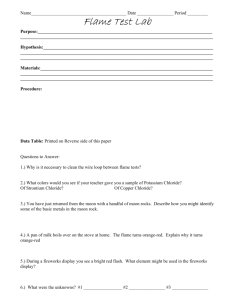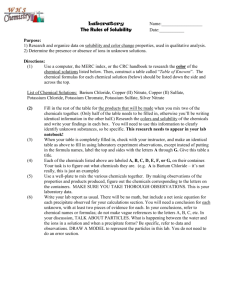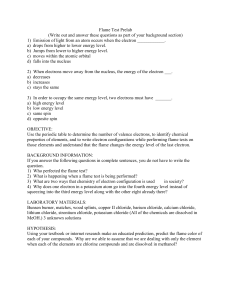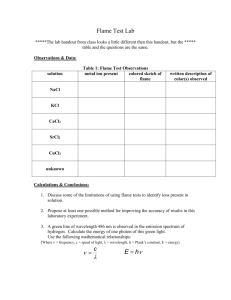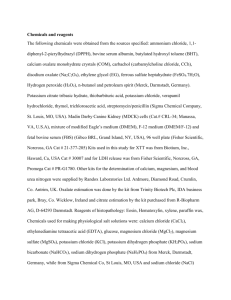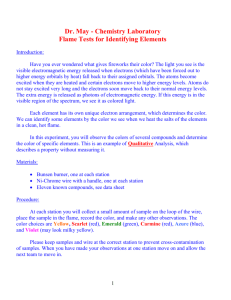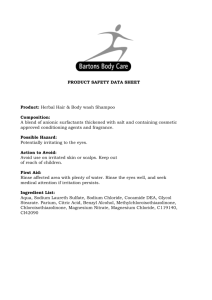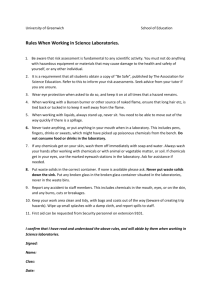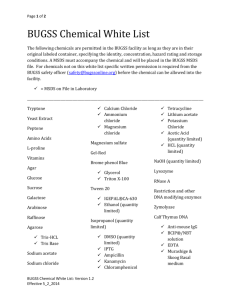Flame Test Laboratory
advertisement
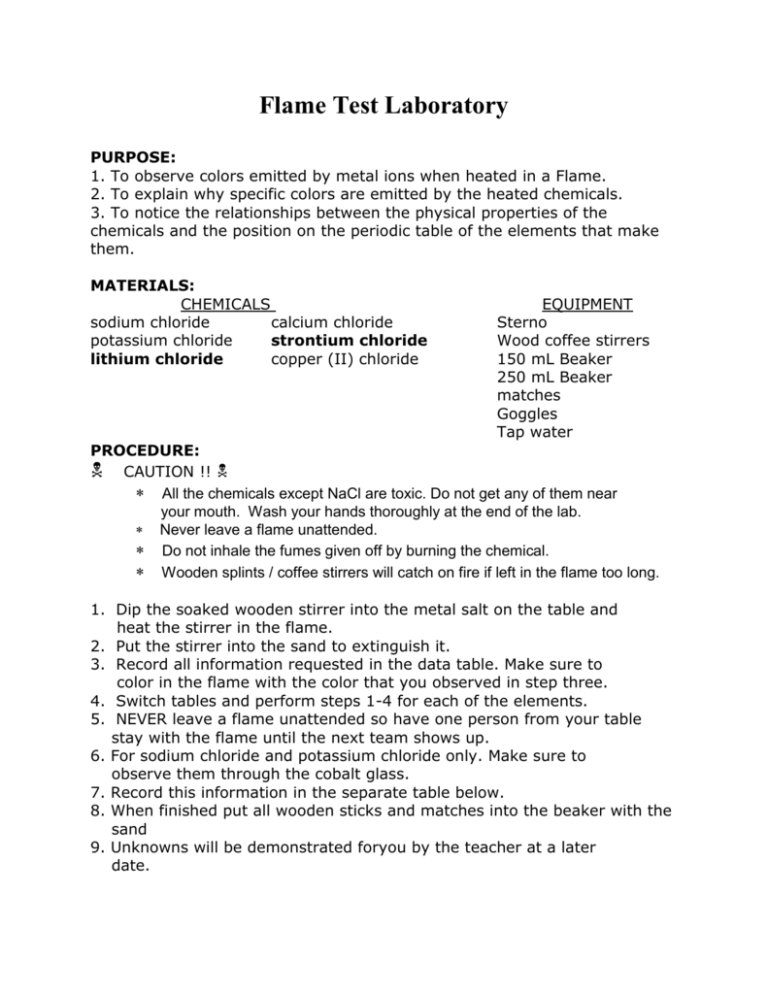
Flame Test Laboratory PURPOSE: 1. To observe colors emitted by metal ions when heated in a Flame. 2. To explain why specific colors are emitted by the heated chemicals. 3. To notice the relationships between the physical properties of the chemicals and the position on the periodic table of the elements that make them. MATERIALS: CHEMICALS sodium chloride calcium chloride potassium chloride strontium chloride lithium chloride copper (II) chloride EQUIPMENT Sterno Wood coffee stirrers 150 mL Beaker 250 mL Beaker matches Goggles Tap water PROCEDURE: CAUTION !! All the chemicals except NaCl are toxic. Do not get any of them near your mouth. Wash your hands thoroughly at the end of the lab. Never leave a flame unattended. Do not inhale the fumes given off by burning the chemical. Wooden splints / coffee stirrers will catch on fire if left in the flame too long. 1. Dip the soaked wooden stirrer into the metal salt on the table and heat the stirrer in the flame. 2. Put the stirrer into the sand to extinguish it. 3. Record all information requested in the data table. Make sure to color in the flame with the color that you observed in step three. 4. Switch tables and perform steps 1-4 for each of the elements. 5. NEVER leave a flame unattended so have one person from your table stay with the flame until the next team shows up. 6. For sodium chloride and potassium chloride only. Make sure to observe them through the cobalt glass. 7. Record this information in the separate table below. 8. When finished put all wooden sticks and matches into the beaker with the sand 9. Unknowns will be demonstrated foryou by the teacher at a later date. Data Tables: Chemicals Flame Without Cobalt Glass ( Normal Eye) Flame With Cobalt Glass Potassium Chloride Sodium Chloride POST LAB QUESTIONS: 1. List three metal ions that would most easily be identified using a flame test 2. Energy of colored light increases as you move through the “rainbow” from red to violet. List the metallic ions used in this test in increasing order of the energy for the light emitted 3. Write the electron configurations for each of the following elements. a. Sodium b. Lithium c. Potassium d. Calcium e. Barium f. Strontium g. Copper 4. Look at the observations about the chemicals prior to heating. Propose a reason that only one of the chemicals is colored. (Hint: Look at question #3) 5. All of the metal ions were tested as chloride compounds. Propose a reason all of the chemicals were chlorides. (Would the results have been the same if some of the chemicals were chlorides, some were nitrates, some were fluorides and some were sulfates?) 6. What is the purpose of using the cobalt glass in the identification of sodium and potassium? (Extra Credit)
